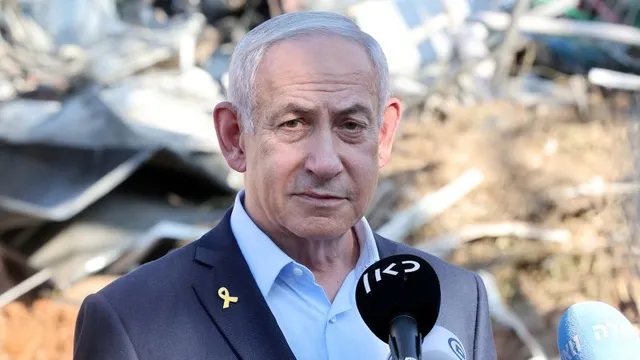
Netanyahu pivots to Gaza strategizing after Iran victory
2025-06-27 07:59- Israel targeted Iranian military facilities in a 12-day operation, achieving air superiority.
- Despite military successes, significant damage was inflicted on Israeli cities by Iranian missiles.
- Netanyahu faces internal debate on addressing the Gaza conflict following the Iran operation.
Express your sentiment!
Insights
In recent weeks, Israel has engaged in a significant military operation against Iran, targeting nuclear facilities and ballistic missile arsenals, which culminated in a successful strike declaring air superiority. With Israeli fighter jets carrying out extensive missions over Iran, the nation faced an unprecedented level of missile attacks that caused considerable destruction in its own cities, especially in Haifa and Tel Aviv. Amidst this significant military engagement, Israeli Prime Minister Benjamin Netanyahu has sought to build national support, emphasizing the campaign’s achievements. However, the aftermath of the conflict has sparked an intense internal debate within Israel regarding the future approach to the ongoing war in Gaza. As the government discusses strategy, the far-right factions advocate for a continuation or escalation of the conflict, while other voices propose using the momentum from the recent success against Iran to seek a comprehensive resolution to the Gaza issue. The recent military success may serve as a pivotal opportunity for Israel, potentially reshaping its regional strategy and addressing the complexities posed by ongoing hostilities with Hamas. Qatar has expressed hopes that the ceasefire between Israel and Iran could facilitate renewed negotiations aimed at ending the conflict in Gaza, as Israel contemplates its next steps. Overall, the outcome from the Iran operation created opportunities and challenges for Israel, complicated further by domestic dissent and the pressing need to address the situation in Gaza more effectively.
Contexts
The conflict between Israel and Iran has deep historical roots, extending back to the mid-20th century. Initially, relations between the two nations were relatively stable, particularly during the reign of the Shah of Iran, who maintained a pro-Western stance and supported Israel's right to exist. However, the 1979 Iranian Revolution marked a pivotal turning point, as the new Islamic Republic under Ayatollah Khomeini adopted an anti-Israeli rhetoric, viewing the state of Israel as a primary adversary. Following this, Iran established support for various militant groups opposed to Israel, such as Hezbollah in Lebanon and Hamas in the Gaza Strip, significantly escalating tensions in the region. This shift laid the groundwork for the long-standing enmity that has characterized Israeli-Iranian relations since the late 20th century. Throughout the 1980s and 1990s, the geopolitical landscape further complicated the Israel-Iran dynamic. The Iran-Iraq War (1980-1988) saw Iran seeking regional power, while Israel engaged in various diplomatic and military maneuvers to counter Iranian influence, including support for Iraqi forces during the conflict. The development of Iran's nuclear program has become a central issue in this conflict, coinciding with Israel's staunch opposition to Tehran's ambitions, which it perceives as an existential threat. The Israeli government has repeatedly expressed fears that a nuclear-armed Iran would lead to significant instability in the Middle East and pose a direct danger to its national security. In the 21st century, the intensity of the Israel-Iran conflict has increased, particularly fueled by Iran's involvement in Syria and its support for anti-Israel groups. The Syrian Civil War allowed Iran to solidify its presence along Israel's northern border, leading to various military confrontations and airstrikes by Israel targeting Iranian military assets. The nuclear deal agreement reached in 2015, formally known as the Joint Comprehensive Plan of Action (JCPOA), aimed to curb Iran's nuclear capabilities in exchange for the lifting of sanctions. However, the United States' withdrawal from the agreement in 2018 under the Trump administration heightened tensions, prompting Iran to expand its nuclear activities, further straining the relationship with Israel and its allies. As of 2025, the geopolitical implications of the Israel-Iran conflict remain profound, with continued hostilities manifesting through cyber warfare, proxy conflicts, and threats of military action. Israel has emphasized its commitment to preventing a nuclear Iran through various means, including potential military strikes on Iranian facilities. The unfolding dynamics in the region suggest that the conflict will persist as a complex interplay of national security interests, ideological rivalries, and regional alliances, affecting not only the two nations involved but also the broader stability of the Middle East.